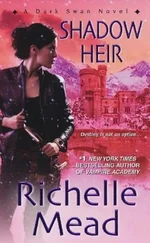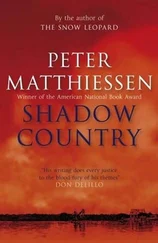Peter Dickinson - Shadow of a Hero
Здесь есть возможность читать онлайн «Peter Dickinson - Shadow of a Hero» весь текст электронной книги совершенно бесплатно (целиком полную версию без сокращений). В некоторых случаях можно слушать аудио, скачать через торрент в формате fb2 и присутствует краткое содержание. ISBN: , Издательство: RHCP, Жанр: Старинная литература, на английском языке. Описание произведения, (предисловие) а так же отзывы посетителей доступны на портале библиотеки ЛибКат.
- Название:Shadow of a Hero
- Автор:
- Издательство:RHCP
- Жанр:
- Год:неизвестен
- ISBN:9781448172627
- Рейтинг книги:3 / 5. Голосов: 1
-
Избранное:Добавить в избранное
- Отзывы:
-
Ваша оценка:
- 60
- 1
- 2
- 3
- 4
- 5
Shadow of a Hero: краткое содержание, описание и аннотация
Предлагаем к чтению аннотацию, описание, краткое содержание или предисловие (зависит от того, что написал сам автор книги «Shadow of a Hero»). Если вы не нашли необходимую информацию о книге — напишите в комментариях, мы постараемся отыскать её.
Shadow of a Hero — читать онлайн бесплатно полную книгу (весь текст) целиком
Ниже представлен текст книги, разбитый по страницам. Система сохранения места последней прочитанной страницы, позволяет с удобством читать онлайн бесплатно книгу «Shadow of a Hero», без необходимости каждый раз заново искать на чём Вы остановились. Поставьте закладку, и сможете в любой момент перейти на страницу, на которой закончили чтение.
Интервал:
Закладка:
Then, while the dust of the old year’s explosions settled greyly onto the new year, and the days went by, Romania and the countries round about dropped out of the news, mostly. The United States had invaded Panama and there was a revolt in Liberia and trouble between Russia and Lithuania and a civil war starting in Azerbaijan, and so on. Still, the people you met, kids at school, even – because Letta had a foreign name and some of them knew that her family came from around there – often talked about Romania, shiny-eyed and romantic. The uprising had been so obviously a Good Thing, because Ceauşescu and his gang had been such horrors. And then the news started coming through about things like the orphanages where all the kids were tied into their cots because there weren’t enough people to look after them, and they all had AIDS from transfusions of infected blood, but still people talked as if all that was over, and there was going to be democracy and foreign medicine and emergency aid and everything would be all right. Of course there were terrible problems still, but now that Ceauşescu was gone they could all be sorted out. Letta found this depressing. First, she knew from Grandad it wasn’t like that. And second, Varina was one of the problems.
About three weeks into the term she got back from school and found that Grandad had visitors, two men in heavy dark suits. Grandad introduced them as Mr Kronin and Mr Dashik. Mr Dashik said, ‘How do you do?’ in English, with a strong accent, as he shook hands. Letta answered in English so as not to seem rude.
‘Letta speaks good Varinian,’ said Grandad, ‘so there’s no need for you to deploy your linguistic skills. They have come from Potok to see me, my darling. We are all three amazed that such a thing is possible.’
‘That’s wonderful!’ said Letta. ‘My first real Varinians! You must have been there during the uprising? What happened? They never even mentioned Varina on the news over here, not once.’
Mr Dashik smiled and shook his head in a puzzled way.
‘Everything happened,’ he said. ‘It was like a dream, a dream in which happenings rush at you and are gone and before you know who or where you are, another happening is rushing at you and you have no time to remember anything. Like that. At first we were so afraid. The police seemed to know everything. But there were rumours, and in certain places on the mountains one could pick up Italian TV reports, and crowds began to gather in Potok and the police told them to disperse and fired on them when they did not go and killed three men and two women and a child – I was there, and I saw it happen – and we began to throw stones. Then more police came and more crowds, and they chased us through the streets but we gathered again and threw stones. But many of the police were unwilling to shoot. In Varina, you know, everybody is somebody’s cousin . . .’
‘You mean the police were Varinians!’ said Letta.
‘Some of them, of course,’ said Mr Dashik, surprised that she didn’t realize.
‘The local Secretary of the Communist Party was my sister’s husband’s uncle,’ said Mr Kronin. ‘He was a hard-line Ceauşescu supporter and had done very well for himself. Everybody was afraid of him. He came out into the Square thinking to cow the uprising with the terror of his presence, but the crowd caught him and hanged him. I was not there, but if I had been I wouldn’t have lifted a finger to save him, family or not family.’
‘And then the people in Belgrade took over the broadcasts and told us that the Ceauşescus had been executed,’ said Mr Dashik. ‘And by now a lot of the police had changed sides, so we had guns and we could shoot back, and Mr Kronin here led the party that took over the Communist headquarters where they were still trying to destroy all their files . . .’
‘It was a great shock to read the files and discover how many people one trusted had been in the pay of the police,’ said Mr Kronin. ‘Good friends, neighbours, colleagues at work, drinking companions . . .’
He shook his head.
There was a silence. It was like when somebody’s died and their name comes up. There was a boy called Mickey in another class at school who’d been hit by a runaway truck last spring. Like that.
‘I suppose you had to read them,’ said Letta.
‘Terrible things had been done,’ said Mr Dashik. ‘They could not simply be forgotten.’
‘As a people we have no talent for forgetting,’ said Grandad. ‘Remember The Mountain Pasture ?’
‘ Anastrondaitu ,’ murmured Mr Kronin, shaking his head again. ‘I have sometimes felt that there is all our history in that one word.’
Another silence, and then Grandad said, ‘Well, gentlemen, I hope you have time to sample the delights of the British crumpet. You will? Excellent. Letta, if you would get some more cups and crumpets and perform your office . . .’
When the visitors had gone Grandad said, ‘What did you mean by calling our friends “real” Varinians? Am I not a real Varinian? Or Mr Jaunis or Mr Orestes? Or your momma and poppa? I will except you, for the moment.’
He was amused, but there was a faint sharpness in his tone.
‘You are, of course,’ said Letta. ‘I don’t know about the others. It’s sort of shadowy. I mean, Mr Orestes seems a bit realler than Mr Jaunis, I don’t know why. I suppose Poppa might be, except that he’s become a sort of nowhere person . . . What did you call him, once?’
‘A citizen of Exilia,’ said Grandad, ‘never to belong to any country of which there is a map. What about your momma?’
‘Oh, I think she’s still a real Varinian underneath. Don’t you? That’s why she keeps trying so hard not to be. Steff’s pretty real in his quiet way. I don’t know Van well enough to say. What were they here for? Just to see you, like an ancient monument? Oh, sorry, I didn’t mean that! Really!’
Grandad was tired but he laughed, which he didn’t do often.
‘In fact they came to ask me if I would inaugurate a festival of Varinian culture in Potok this summer.’
‘Oh, I know all about that.’
‘You do? It is not yet publicly announced.’
‘Nigel told me. Momma wanted to talk to Mollie about something last night and she asked me to get the number because her hands were wet, and Nigel said Mollie was out whooping it up with Mr Orestes at the Varinian Dance Society. You know Mollie’s gone really to town about Varina since the vigil? She’s learning Field and she’s joined Mr Orestes’ Dance Society – he’s a hot number at it, Nigel says, and now they’re mad keen to take a team out to the festival. Have I said the wrong thing?’
‘No, my darling. Tell me about the Dance Society.’
‘Oh. Nigel’s been to see, but he decided it wasn’t him. You know what boys are like about dancing.’
‘English boys. In Varina dance is regarded as a primarily masculine activity. Go on.’
‘Actually one of the girls told Nigel she thought Mr Orestes was sexy. Can you imagine? He did a sort of exhibition, playing bagpipes and dancing at the same time with his feet going so fast they’re an absolute blur. And he wowed them all. He’s a real fanatic, Nigel said. Anyway, he’s got Mollie hooked. She’s making herself a national costume, can you believe? Are you going to go, Grandad? Do you think we can all go?’
‘I shall have to think about it. The new authorities in Bucharest are unlikely to welcome any manifestation of cultural independence in a minority population. They have a large and restive Hungarian minority in the north of the country, whom they won’t want to encourage. On the other hand they will want to prove their liberal credentials, and if the festival brings in a large number of exiles, which I think it may, that will provide useful hard currency. Still, it will take some careful diplomacy. Fortunately Mr Kronin’s brother is a senior official in the new Ministry of Culture. I had better talk to Hector. Mollie too, perhaps, before she looses her organizational fervour on the project . . .’
Читать дальшеИнтервал:
Закладка:
Похожие книги на «Shadow of a Hero»
Представляем Вашему вниманию похожие книги на «Shadow of a Hero» списком для выбора. Мы отобрали схожую по названию и смыслу литературу в надежде предоставить читателям больше вариантов отыскать новые, интересные, ещё непрочитанные произведения.
Обсуждение, отзывы о книге «Shadow of a Hero» и просто собственные мнения читателей. Оставьте ваши комментарии, напишите, что Вы думаете о произведении, его смысле или главных героях. Укажите что конкретно понравилось, а что нет, и почему Вы так считаете.








